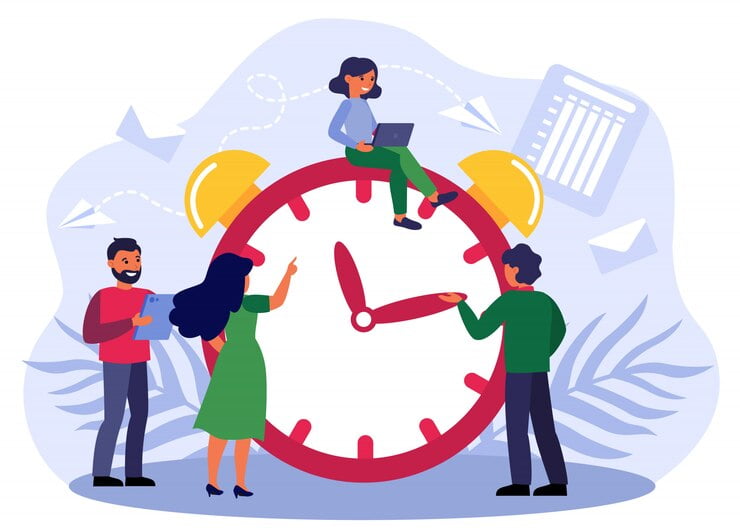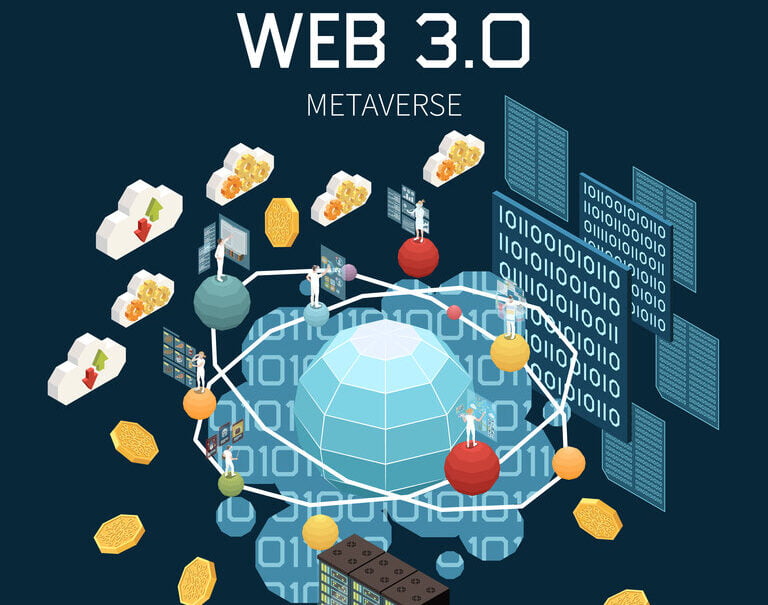Time management is the practice of planning and organizing one’s time effectively to maximize productivity and achieve goals. By effectively allocating time to specific tasks and prioritizing them, individuals can improve their efficiency and overall performance.
Effective time management is a crucial skill that allows individuals to accomplish tasks efficiently, effectively prioritize activities, and achieve personal and professional success. In the modern world, where distractions are enormous and demands on our time are constant, mastering time management has become more important than ever.
Whether you are a student, a professional, or a homemaker, being able to effectively manage your time enables you to balance your responsibilities, reduce stress, and maximize your productivity. By implementing strategies like setting goals, prioritizing tasks, and eliminating time-wasting activities, you can gain control over your time and make the most of each day. We will explore various time management techniques and provide practical tips to help you optimize your time and achieve your objectives.
Table of Contents
ToggleThe Importance Of Time Management
Time management is crucial for achieving success and maintaining a healthy work-life balance. By effectively managing time, individuals can maximize productivity and reduce stress.
Benefits Of Effective Time Management
- Boosts productivity
- Reduces stress levels
- Enhances focus and efficiency
Consequences Of Poor Time Management
- Decreased productivity
- Increased stress and anxiety
- Missed deadlines and opportunities
Practical Techniques For Time Management
Practical time management techniques are invaluable for maintaining focus and productivity in this fast-paced world. By employing these strategies, individuals can effectively prioritize tasks, set and achieve goals, and eliminate time wasters, ultimately leading to greater efficiency and reduced stress.
Prioritization Strategies
Prioritizing tasks is essential for efficient time management. Here are some practical prioritization strategies:
- Create a to-do list outlining tasks in order of importance.
- Identify urgent and important tasks to tackle first to prevent last-minute rushes.
- Use the Eisenhower Matrix to categorize tasks based on urgency and importance, helping in decision-making.
Goal Setting And Planning
Goal setting is crucial in time management. Effective techniques include:
- Set SMART goals – Specific, Measurable, Achievable, Relevant, and Time-bound.
- Break large tasks into smaller steps to make them more manageable and less overwhelming.
- Develop a daily plan to allocate time for specific tasks, ensuring steady progress towards goals.
Eliminating Time Wasters
Identifying and eliminating time wasters boosts productivity. Some practical techniques include:
- Minimize multitasking to enhance focus and efficiency.
- Use time-tracking tools to identify time-consuming activities and leverage ways to minimize them.
- Delegate tasks that can be handled by others, freeing up valuable time.
Tools For Enhancing Productivity
Enhance your time management with effective productivity tools. Boost your efficiency, stay organized, and meet deadlines using these essential resources. Improve your productivity with the right tools for efficient time management.

When it comes to managing time effectively, having the right tools in place can make all the difference. From time-tracking apps to task management software, there are numerous options available to help streamline your day. By leveraging these tools, you can boost your productivity, stay organized, and ensure that nothing slips through the cracks.
Time Tracking Apps
One of the most effective ways to manage your time is by using time-tracking apps. These apps not only help you keep track of how you spend your time but also provide valuable insights into your productivity patterns. Whether you’re a freelancer, a remote worker, or simply looking to optimize your daily schedule, time-tracking apps can be a game-changer. Here are a few popular options:
- RescueTime
- Toggl
- Harvest
Task Management Software
Stay on top of your to-do list with task management software. These tools allow you to create and organize tasks, set deadlines, assign priorities, and collaborate with others. By keeping all your tasks in one place, you can avoid the confusion and overwhelm that often come with multiple projects. Some top task management software options include:
- Todoist
- Asana
- Trello
Calendar Systems
To ensure you never miss an important deadline or meeting, consider using a calendar system. These systems can help you stay organized, manage your appointments, and schedule your tasks efficiently. With features like recurring events, reminders, and integrated notifications, calendar systems simplify your time management process. Here are a few popular calendar systems:
| Google Calendar | Outlook Calendar |
| Apple Calendar | Calendly |
By incorporating these tools into your daily routine, you’ll have a solid foundation for enhancing your productivity and making the most of your time. Experiment with different options to find what works best for you, and watch as your efficiency and focus skyrocket!

Overcoming Common Time Management Challenges
Master the art of prioritization, goal setting, and minimizing distractions to optimize your day and achieve your goals effortlessly.
Dealing With Procrastination
Dealing with procrastination is essential for effective time management. It involves prioritizing tasks and setting deadlines to foster productivity. Procrastination often stems from a fear of failure or an overwhelming workload. Breaking tasks into smaller steps can help overcome this mental block. Setting clear goals and utilizing tools like timers or to-do lists can promote focus and deter procrastination tendencies.
Handling Interruptions
Handling interruptions is vital to maintain momentum in your work. Communicating boundaries with colleagues and employing “Do Not Disturb” signs can be effective strategies. Prioritizing tasks and scheduling specific blocks of uninterrupted time can minimize the impact of frequent interruptions. Implementing strategies like time-blocking and establishing designated communication times can help mitigate interruptions.
Avoiding Multitasking
Avoiding multitasking is crucial for efficient time management. Focusing on one task at a time allows for better concentration and higher-quality output. Multitasking can lead to decreased productivity and increased errors. Emphasize the importance of single-tasking for improved time utilization. Utilize tools like project management software to track tasks and commitments, promoting a focused approach to work completion.
The 3 Seconds Rule
The “3 seconds rule” for time management is a simple way to tackle procrastination. It suggests that when you have a task to do, you should start it within three seconds of thinking about it. The idea is to stop overthinking or making excuses, and just dive in. By starting quickly, you create momentum, making it easier to continue. This rule is especially useful for small tasks, like sending an email or tidying up your desk. It helps to reduce the feeling of being overwhelmed, as you’re taking action immediately. Overall, the “3 seconds rule” is an effective tool for boosting productivity and staying on track.
The 2 Minutes Rule
The “2 minutes rule” for time management is a simple but effective technique to boost productivity. It suggests that if a task takes two minutes or less, you should do it right away, without delaying or overthinking. This approach helps to clear out small tasks that might otherwise pile up and become overwhelming. Examples include replying to a quick email, taking out the trash, or tidying up your workspace. By handling these minor tasks immediately, you keep your to-do list shorter and reduce stress. The “2 minutes rule” is an easy way to stay organized, get more done, and maintain a sense of accomplishment throughout the day.
Sustaining Long-term Productivity Habits
Sustaining long-term productivity habits requires consistency, planning, and patience. To maintain these habits, start with small, manageable changes to your daily routine. For example, set a regular wake-up time, create a to-do list, or block off time for focused work. It’s essential to track your progress and celebrate small victories, which keeps you motivated. Surround yourself with a supportive environment, whether it’s a tidy workspace or positive people who encourage your goals. Don’t forget to take breaks and prioritize self-care to avoid burnout. With steady effort and a positive mindset, you can sustain productivity habits that lead to lasting success.
Building A Routine
Building a routine is about creating a consistent schedule to organize your day. Start by identifying key tasks that you need to complete, such as work, exercise, or family time. Then, allocate specific times for each activity, ensuring there’s a balance between work and relaxation. A good routine can help reduce stress and increase productivity because it gives you a clear plan to follow. Include regular breaks to avoid burnout and adjust the routine as needed to fit your lifestyle. By sticking to a routine, you can develop healthy habits, improve time management, and make your days more predictable and manageable.

Self-care Practices For Sustainable Productivity
Self-care practices are key to maintaining sustainable productivity. They help you stay healthy, focused, and energized. Start with basic self-care like getting enough sleep, eating nutritious meals, and exercising regularly. These practices give you the energy you need for a productive day. Take breaks during work to rest your mind. Mindfulness techniques, like meditation or deep breathing, can reduce stress and keep you centered. It’s also important to set boundaries, such as not working during off-hours, to maintain a work-life balance. By prioritizing self-care, you can sustain productivity over the long term and enjoy a healthier, more balanced life.
Incorporating effective time management strategies can significantly enhance productivity and reduce stress levels. By prioritizing tasks, setting realistic goals, and maintaining a structured routine, individuals can optimize their time and achieve greater work-life balance. Embracing time management techniques empowers individuals to make the most of their day, fostering success and personal fulfillment.







